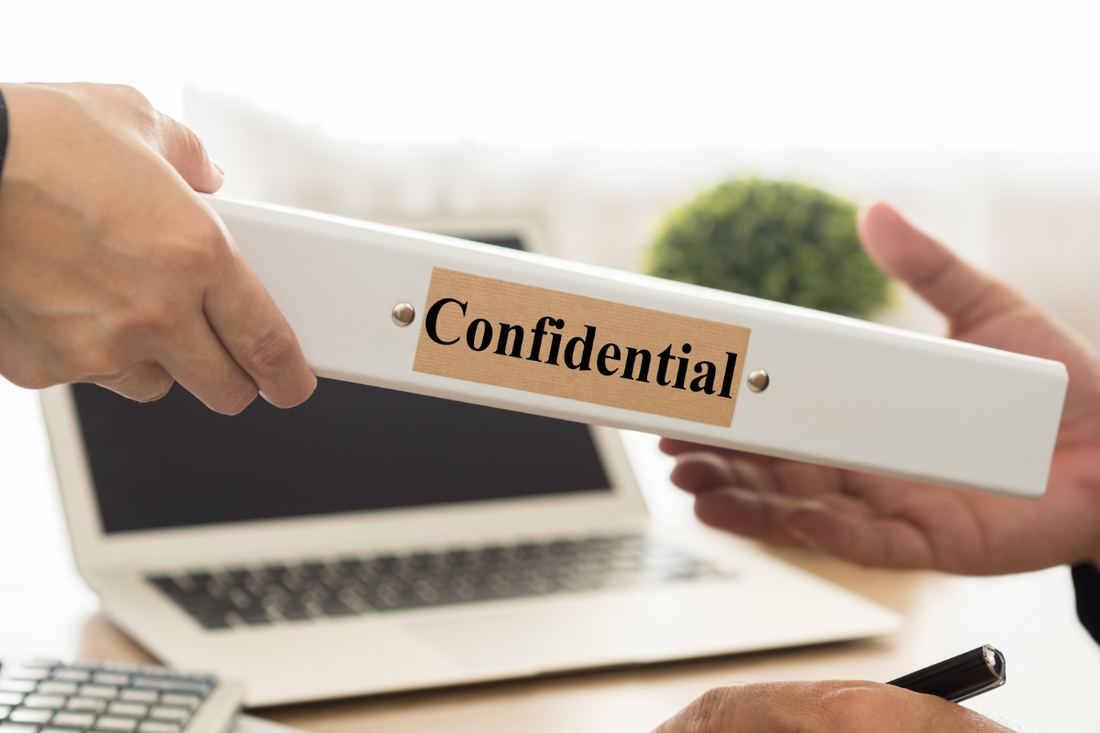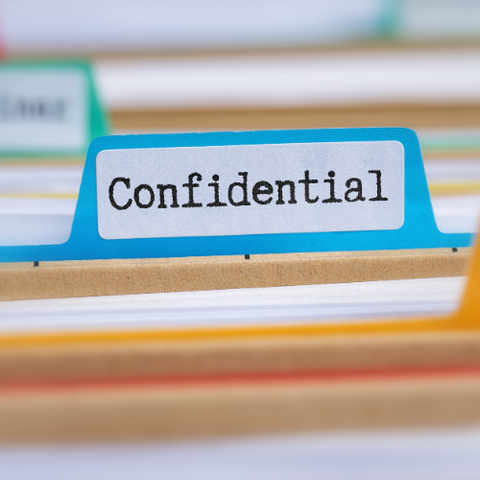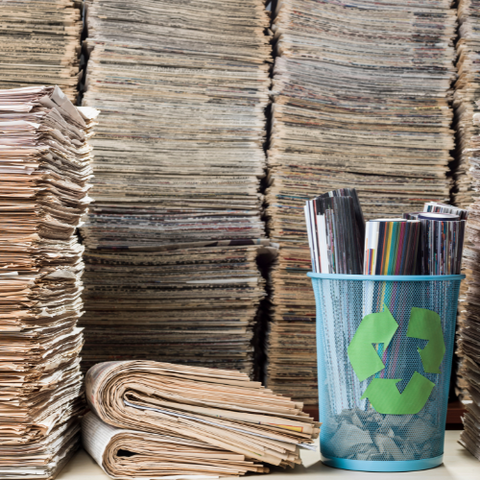How to Dispose of Confidential Waste: Top 6 Questions Answered

How do I safely get rid of confidential waste? It's a common question that many people ask us.
Remember the old adage of cutting your confidential documents into hundreds of tiny pieces to make them indiscernible to prying eyes? Time-consuming was an understatement. Thankfully, we soon came to realise the benefits of confidential paper shredders that did the hard work for us!
But how/where do we store confidential paper documents prior to shredding? During this timeframe, your sensitive data remains vulnerable to falling into the wrong hands.
As a business, if you're wondering how to get rid of confidential waste, there are a few important questions you should ask yourself in order to implement the most effective confidential waste disposal strategy.
Let’s start at the top!
1. What is confidential information?

Confidential information refers to any document or material that contains sensitive or private details about a business or company. This can include financial records such as bank statements, customer and/or employee data, legal documents, business cards, and contracts. Simply put, it consists of all information, data, materials, or knowledge that is relevant to a business and not accessible within the public domain.
Businesses have a duty of care to ensure that restricted access is executed through confidentiality agreements such as NDAs (non-disclosure agreements).
2. Why is confidential waste disposal important?
With the increase in tech-related connectivity and mobile phone proliferation, there is further pressure to ensure that measures are more rigid than ever to protect confidential information.
Identity Theft
According to the Home Office, identity fraud is one of the fastest-growing crimes in the UK affecting approximately 100,000 people a year. Some of these crimes occur due to bin-raiding which is a very real and concerning phenomenon. If confidential waste has not been destroyed safely and falls into the wrong hands, the implications can be severe. Taking steps to prevent identity theft, blackmail or fraud is something that should be considered carefully to protect your private and sensitive information.
Potential Legal Implications
Disposing of confidential waste in a safe and secure manner should be a key priority for any organisation. Under the Data Protection Act 1998, all personal data belonging to a company must be kept secured and disposed of correctly.
Confidential waste disposal is important for a number of reasons including privacy protection, legal compliance, data breach prevention, and intellectual property protection. Failure to do so can result in identity theft, fraud, and other malicious activities that can incur legal consequences, financial penalties, and a tarnished business reputation.
One of the key principles of the General Data Protection Regulation (GDPR) is that all personal data should be processed securely using 'the appropriate technical and organisational measures'.
3. Where should I collect internal confidential waste?

Every business will differ in terms of how they organise sensitive documentation and dispose of confidential waste. In the modern arena, businesses worldwide are gravitating towards paperless strategies that support greater sustainability.
It is always recommended to limit the amount of printing you do for the purpose of reducing your paper waste and enhancing your data security. That said, there will always be a necessity for printing confidential documents with the likes of business contracts and signatures, all of which should be factored into your confidential waste disposal strategy.
Confidential Waste Wheelie Bins
Prior to shredding, there are certain measures that everyone should take to stop their confidential waste from ending up in the wrong hands. Confidential waste wheelie bins enable users to dispose of documents in a separate designated container from other waste or non-confidential documentation.
With security at the top of the agenda, standard waste disposal bins or recycling bins are insufficient for sensitive documents. Confidential documents contain sensitive data regarding your employees, clients, customers, and business, all of which must be safeguarded.
Confidential waste bins are designed to ensure that confidential waste remains secure until destruction. You'll find a wide range of choices available to suit your requirements in terms of size, shape, locking options, and secure lids.
4. Where should I implement confidential waste bins?
Once you’ve established your personal requirements for the secure disposal of confidential waste, you’ll have more of an idea of the working areas that require confidential waste bins. While there are numerous options available, confidential waste wheelie bins are an ideal solution for maneuverability from one area to another when required, and fit easily into wheelie bin storage.
Convenience is key to a safe and successful waste disposal strategy, so easy access ensures that lightweight confidential waste solutions can be conveniently utilised when necessary. In turn, you have peace of mind that your confidential documents are safely disposed of and hidden from prying eyes.
5. What size would you recommend for a confidential waste wheelie bin?

Confidential waste wheelie bins offer an alternative disposal method to regular waste bins which usually have a small capacity. Specifically designed to ensure that confidential waste is securely stored, they feature secure lids and a paper slot aperture to allow easy disposal for users.
Available in 120L, 140L, 240L, and 360L, you can select the most suitable size for your business needs. If you produce large volumes of confidential waste, you’ll probably benefit from the 360L, but it’s all down to personal requirements.
Ideally, you’re best to select a size that you can fill and dispose of quickly with your professional shredding company. It is never advisable to leave a half-filled confidential waste bin in your workspace for a lengthy period of time. By ensuring that you destroy confidential documents in the quickest time frame, you can remain stress-free regarding unauthorised copying.
6. How can I get my staff on board?
Encouraging your workforce to support your confidential waste disposal scheme is an integral part of your strategy. They will no doubt have a level of understanding if you've implemented NDAs but outlining the importance of sensitive documents and their safe disposal is vital in avoiding hefty fines and legal prosecution.
Ensure that your employees are familiar with all documents and materials that are confidential in nature. Educate them on the correct disposal processes for confidential business waste. Once you have your confidential waste wheelie bins in place, scatter them in working areas that accumulate the most confidential paperwork and advise on the importance of continuity for safeguarding purposes.
Our top tip for optimal success is to implement adequate signage to remind users of the ramifications associated with a sub-standard confidential waste disposal strategy. If your workforce is constantly aware of the correct processes for disposing of confidential waste, you’re putting their safety first which is vital to any successful business.
Don’t hesitate to contact our team of experts for more information!

